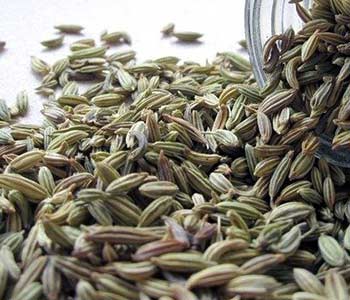Your IQ Is 140 Or Higher If You Know The Longitude and Latitude Of These Cities

Losing weight can be a challenging journey, but incorporating the right foods into your diet can significantly improve your results. While no single food can magically melt away pounds, certain foods can help support your weight loss efforts by boosting metabolism, reducing appetite, and promoting feelings of fullness. So, below are nine foods that can help you achieve your weight loss goals and improve your overall health.
1. Leafy Greens
Leafy greens, such as spinach, kale, and collard greens, are low in calories and high in fiber, making them an excellent addition to any weight loss diet. They are also packed with vitamins, minerals, and antioxidants that support overall health. Leafy greens can be easily incorporated into salads, smoothies, and sautéed dishes [1].
2. Eggs
Eggs are a nutrient-dense food that can help support weight loss. They are high in protein, which can help to reduce appetite and increase feelings of fullness. Additionally, studies have shown that eating eggs for breakfast can lead to significant weight loss compared to other breakfast foods [2].
3. Berries
Berries, such as strawberries, blueberries, and raspberries, are low in calories and high in fiber, making them a perfect sweet treat for those trying to lose weight. They are also rich in antioxidants, which can help to reduce inflammation in the body and support overall health. Berries can be enjoyed on their own, added to yogurt or oatmeal, or blended into smoothies [3].
4. Lean Protein
Lean protein sources, such as chicken, turkey, fish, and tofu, are essential for weight loss. Protein helps to reduce appetite, increase feelings of fullness, and preserve lean muscle mass during weight loss. Aim to include a source of lean protein at every meal and snack [4].
5. Whole Grains
Whole grains, such as quinoa, brown rice, and oats, are high in fiber and nutrients that support weight loss. They can help to reduce appetite, increase feelings of fullness, and regulate blood sugar levels. Choose whole grains over refined grains for maximum benefits [5].
6. Avocado
Avocados are a nutrient-dense food that can help support weight loss. They are high in healthy fats, fiber, and vitamins, which can help to reduce appetite and increase feelings of fullness. Avocados can be enjoyed on their own, added to salads or sandwiches, or used as a healthy substitute for butter or oil in cooking [6].
7. Nuts and Seeds
Nuts and seeds, such as almonds, chia seeds, and flaxseeds, are high in healthy fats, protein, and fiber, making them a perfect snack for weight loss. They can help to reduce appetite, increase feelings of fullness, and regulate blood sugar levels. However, be mindful of portion sizes, as nuts and seeds are calorie-dense [7].
8. Cruciferous Vegetables
Cruciferous vegetables, such as broccoli, cauliflower, and Brussels sprouts, are low in calories and high in fiber, making them an excellent addition to any weight loss diet. They are also rich in vitamins, minerals, and antioxidants that support overall health. Cruciferous vegetables can be easily incorporated into salads, stir-fries, and roasted dishes [8].
9. Green Tea
Green tea is a healthy beverage that can support weight loss. It contains caffeine and catechins, which can help to boost metabolism and increase fat burning. Additionally, drinking green tea has been shown to reduce appetite and increase feelings of fullness. Aim to drink 2-3 cups of green tea per day for maximum benefits [9].
Incorporating these nine foods into your diet can help support your weight loss efforts and improve your overall health. Remember, weight loss is a journey that requires a combination of a healthy diet, regular exercise, and lifestyle changes. Be patient with yourself and celebrate your progress along the way.
References
- Slavin, J. L., & Lloyd, B. (2012). Health benefits of fruits and vegetables. Advances in Nutrition, 3(4), 506-516. https://doi.org/10.3945/an.112.002154
- Vander Wal, J. S., Gupta, A., Khosla, P., & Dhurandhar, N. V. (2008). Egg breakfast enhances weight loss. International Journal of Obesity, 32(10), 1545-1551. https://doi.org/10.1038/ijo.2008.130
- Basu, A., Rhone, M., & Lyons, T. J. (2010). Berries: emerging impact on cardiovascular health. Nutrition Reviews, 68(3), 168-177. https://doi.org/10.1111/j.1753-4887.2010.00273.x
- Paddon-Jones, D., Westman, E., Mattes, R. D., Wolfe, R. R., Astrup, A., & Westerterp-Plantenga, M. (2008). Protein, weight management, and satiety. The American Journal of Clinical Nutrition, 87(5), 1558S-1561S. https://doi.org/10.1093/ajcn/87.5.1558S
- Ye, E. Q., Chacko, S. A., Chou, E. L., Kugizaki, M., & Liu, S. (2012). Greater whole-grain intake is associated with lower risk of type 2 diabetes, cardiovascular disease, and weight gain. The Journal of Nutrition, 142(7), 1304-1313. https://doi.org/10.3945/jn.111.155325
- Wien, M., Haddad, E., Oda, K., & Sabaté, J. (2013). A randomized 3x3 crossover study to evaluate the effect of Hass avocado intake on post-ingestive satiety, glucose and insulin levels, and subsequent energy intake in overweight adults. Nutrition Journal, 12, 155. https://doi.org/10.1186/1475-2891-12-155
- Mattes, R. D., Kris-Etherton, P. M., & Foster, G. D. (2008). Impact of peanuts and tree nuts on body weight and healthy weight loss in adults. The Journal of Nutrition, 138(9), 1741S-1745S. https://doi.org/10.1093/jn/138.9.1741S
- Fujioka, K., Greenway, F., Sheard, J., & Ying, Y. (2006). The effects of grapefruit on weight and insulin resistance: relationship to the metabolic syndrome. Journal of Medicinal Food, 9(1), 49-54. https://doi.org/10.1089/jmf.2006.9.49
- Hursel, R., Viechtbauer, W., & Westerterp-Plantenga, M. S. (2009). The effects of green tea on weight loss and weight maintenance: a meta-analysis. International Journal of Obesity, 33(9), 956-961. https://doi.org/10.1038/ijo.2009.135









